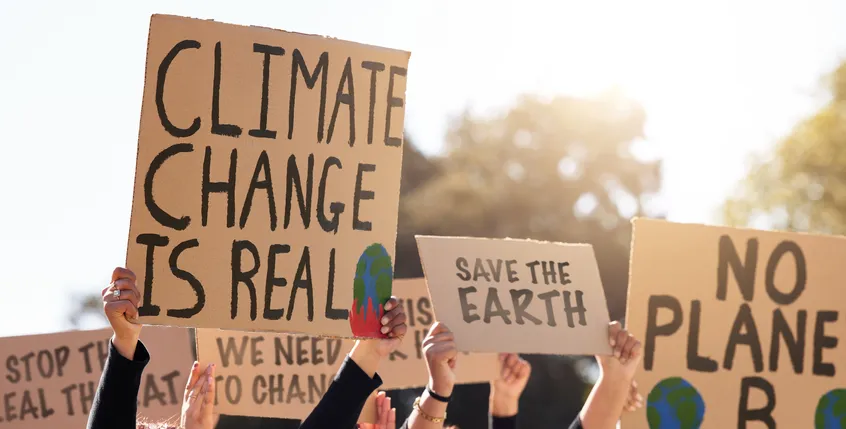“Watch out for false prophets... By their fruit you will recognise them…every good tree bears good fruit, but a bad tree bears bad fruit.” (Matthew 7:15-17, NIV)
Climate alarmism [1] is often spoken of in religious terms. [2] The connection naturally springs to mind when considering the priestesses of Gaia at "climate" demonstrations, or the cult-like statements of protestors justifying their latest acts of cultural iconoclasm or infrastructure sabotage. Claire Coutinho, the former UK Energy Secretary, noted that the achievement of net zero carbon emissions has become “a religion” for such protest groups. [3] This way of thinking would appear to have become a sub-sect of full-blown Nature worship, or is certainly adjacent to it. Commentators often note that alarmist thinking has filled the religious vacuum in Western societies as adherence to Christianity has waned.
Given the overt danger of religious excess in this area, one might have expected Christians in the public eye to be circumspect in endorsing such mania. However, one is disappointed. For instance, the Church of England (CoE) is committed to "net zero" emissions by 2030 and, in 2022, took on £250m of debt to fund "green" investments and projects. [4] Pope Francis asserted that there is no question that human action is responsible for climate change while excoriating "climate deniers". [5] Evangelical climate advocate Katherine Hayhoe says she is motivated by her faith to warn of the “unprecedented” climate changes to come that cannot be adapted to. [6] Such Christians often take the imperative given to steward the Garden of Eden (Genesis 2:15) and then leap to the conclusion that this equates to decarbonising energy usage and moving to "net zero" emissions, ignoring the multiple contested assumptions and trade-offs that have to be made to reach that endpoint (see appendix). Christians who sincerely disagree with such a leap of faith are criticised for not understanding the "integrated" gospel. [7]









A national briefing
The tail-end of last year saw over 1,200 politicians and leaders from business, faith, culture, sport and the media gather …